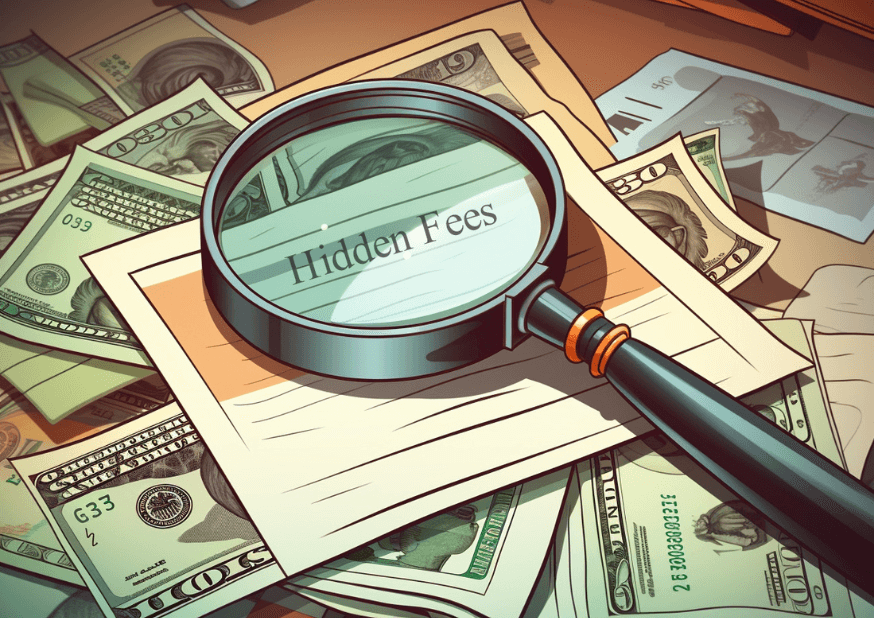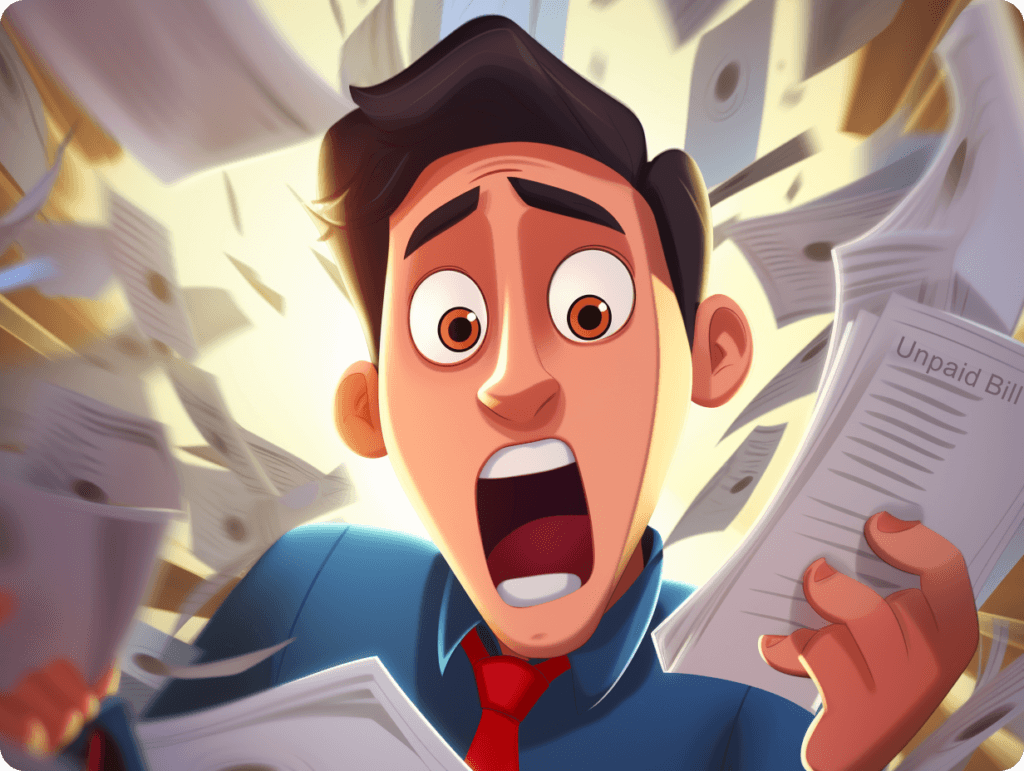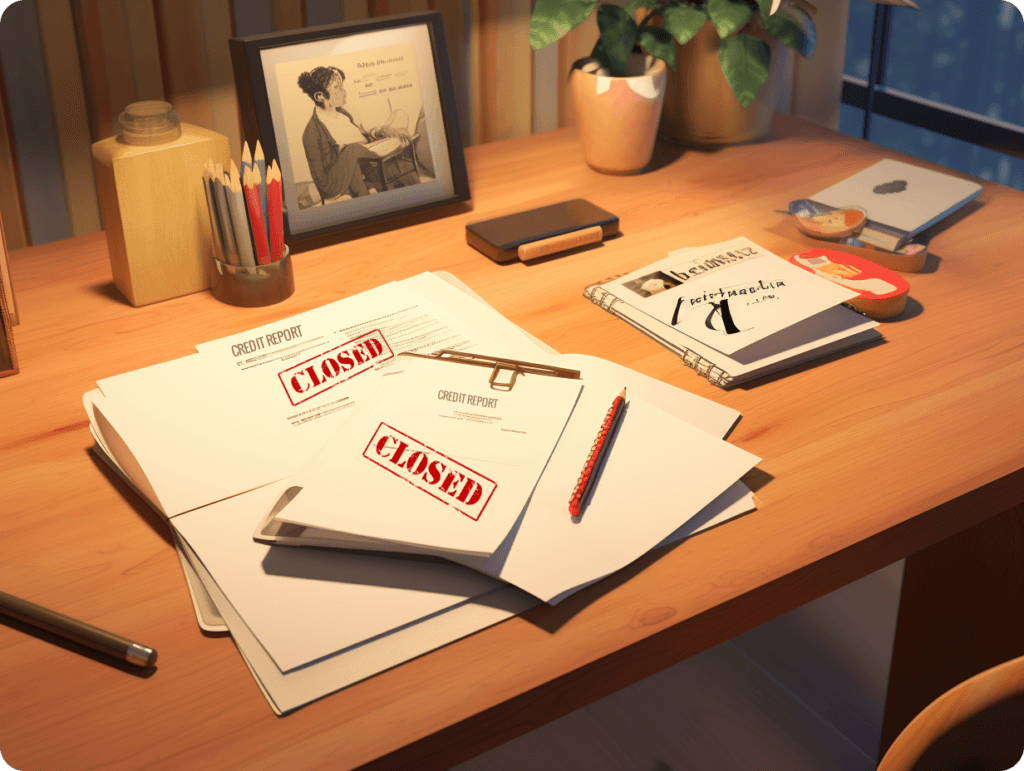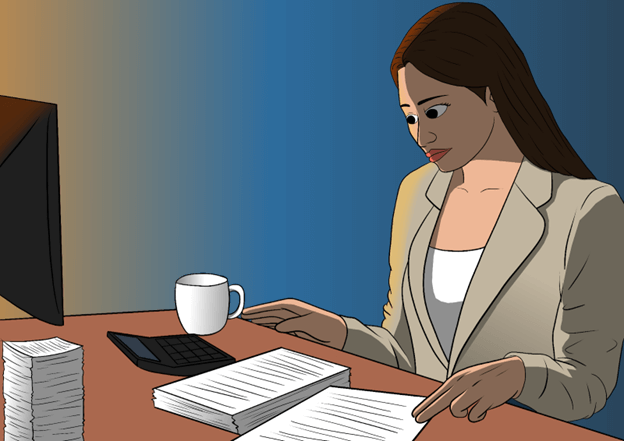- Blogs
- /
- How to Fix Credit After a Car Repossession Using These 3 Simple Strategies
How to Fix Credit After a Car Repossession Using These 3 Simple Strategies

Summary
Have you ever gone through the traumatic experience of having your vehicle repossessed? It’s a difficult circumstance that could throw you off your game financially. But your story doesn’t stop there. You can still regain your creditworthiness and your car.
However, regaining your creditworthiness depends on how you handle your post-repossession period. Although it’s considered the end of the path, repossession is simply a roadblock. You could restore your financial stability and automobile ownership by taking proactive measures. Regain control and make a well-thought-out strategy.
We’ll review the actions and approaches you can use to fix your credit post-auto-repossession. Go through the complicated process of applying for and acquiring new loans. And also discuss the actions you need to take to improve your credit. Read on as we discuss how to fix credit after a car repossession.
Key Takeaways
- Repossession damages your credit score. It stays on your credit report for up to seven years.
- Repossession makes obtaining new credit challenging. Lenders may view you as high-risk and offer less favorable terms.
- Rebuilding credit after repossession takes time, effort, and patience.
- Avoiding future repossessions and making strategic credit moves are crucial for financial stability.
- Voluntarily surrendering your vehicle might be less damaging to your credit than involuntary repossession. Voluntary surrender gives you more control and can minimize negative credit impacts.
- Repossession’s impact lasts up to seven years. It can diminish with responsible financial behavior. Maintaining good credit habits can mitigate long-term effects. These habits include timely payments and low balances.
- Familiarize yourself with consumer protection laws related to repossession. This will ensure fair treatment and understanding of your rights.
- Repossession significantly lowers credit score. Late payments worsen the drop. Owing money post-repossession can affect current finances and future borrowing capabilities.
- To avoid future repossessions, evaluate your financial situation before applying for new loans. Research lenders catering to individuals with past repossessions.
- To improve your approval odds, pay off outstanding debts. Also, make on-time payments and reduce credit card balances to enhance approval chances.
- Create a comprehensive financial plan to manage expenses efficiently. Seek professional advice if needed.
Understanding Repossession
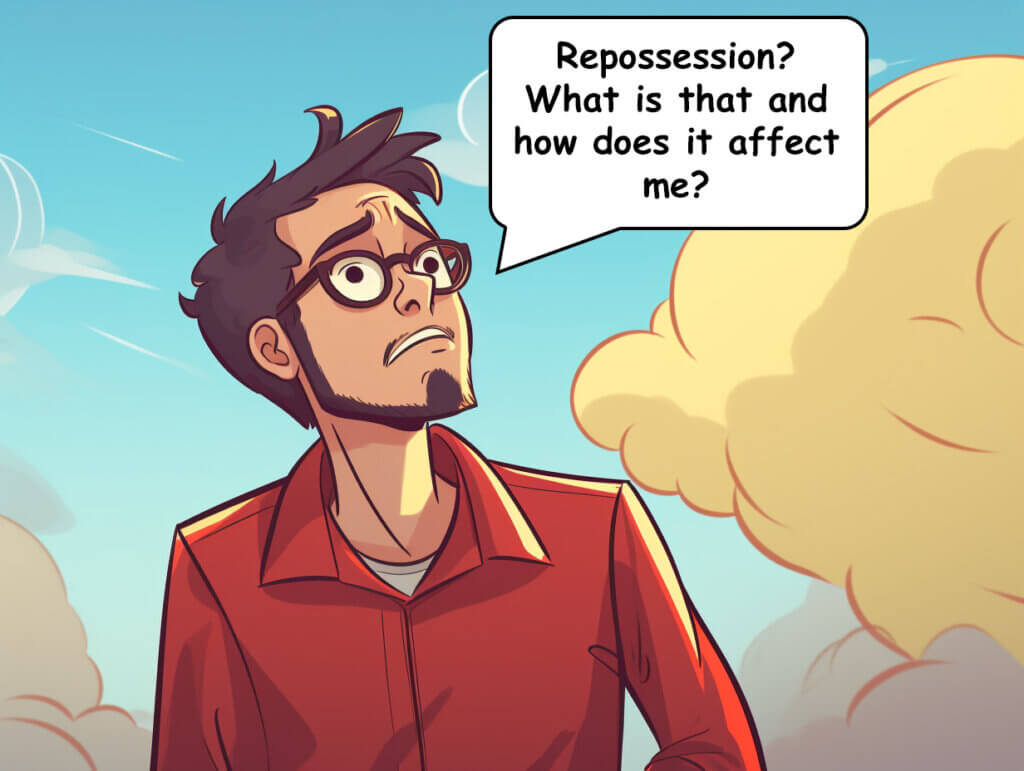
1. Credit Impact
A car repossession can severely damage your credit score. It stays on your credit report for up to seven years, making it challenging to obtain new credit. Lenders may even view you as high-risk. This can make it difficult to get loans or credit cards approved.
Repossession affects your ability to get new credit. It also affects the interest rates and terms offered when approved. If you apply for an auto loan after a repossession, you might face higher interest rates. Lenders perceive you as a higher risk.
2. Voluntary vs Involuntary Repossession
Understanding the difference between voluntary and involuntary repossession is crucial. Surrendering your vehicle voluntarily can cause less harm to your credit than an involuntary repossession. Involuntary repossession occurs when the lender takes possession of the vehicle without your consent.
By voluntarily surrendering the vehicle, you have more control over how and when it happens. This may reduce negative impacts on your credit report compared to an involuntary repo.
3. Duration on Report
The impact of a car repossession can linger on your credit report for up to seven years. But its effect may diminish if you maintain good credit habits moving forward. Making timely payments and keeping balances low mitigates the long-term impacts of repossession.
It’s important to note that a repo stays on your credit report for up to seven years. Responsible financial behavior after repossession lessens its impact over time.
4. Knowing Your Rights
You must familiarize yourself with consumer protection laws about car repossession. This is essential for protecting yourself legally during this process. You have rights. These include receiving proper notification before it occurs and having an opportunity to retrieve personal belongings from the repossessed vehicle.
Knowing these rights empowers individuals in this challenging situation. It ensures they are treated reasonably within legal boundaries.
Repossession Aftermath
Credit Score Effects
A car repossession can drastically impact your credit score. It can cause a significant drop. Late payments leading up to the repossession also contribute to this.
Rebuilding your credit will need consistent effort and responsible financial behavior. For example, making timely payments and keeping balances low.
When a car is repossessed, it shows that you didn’t meet the loan agreement terms. This raises red flags for future lenders. It goes on to stay on your credit report for several years. It influences any new applications for loans or lines of credit.
Rebuilding damaged credit takes time and dedication. It is achievable with patience and perseverance. You can improve your credit score by consistently making on-time payments. Also, by managing debt responsibly.
Owing Money Post-Repossession
Even after a car repossession, you may still owe money to the lender. The remaining balance is a deficiency. It arises if the proceeds from selling the repossessed vehicle do not cover your debts.
The deficiency balance affects your current finances and future borrowing capabilities. It’s crucial to address this outstanding amount to improve your credit. It impacts how potential lenders perceive you as a borrower.
To address this deficiency balance, consider negotiating with the lender. You can also seek advice from financial experts. They deal with post-repossession debts.
Rebuilding Credit Post-Repossession

1. Paying Off Debt
Reducing overall debt improves your credit score after repossession. Focusing on paying off high-interest debts first can save you money in the long run. It can also contribute to an improved credit profile.
Creating and sticking to a budget allows you to allocate funds toward debt repayment. By prioritizing debt reduction, you demonstrate discipline and fiscal responsibility. This is favorable when seeking new lines of credit or loans.
Lowering your total debt burden frees up more of your available income. You can then use it for savings or emergency expenses. This provides excellent financial stability for the future.
2. On-Time Payments
Consistently making on-time payments is essential for rebuilding credit after repossession. Setting up automatic payments or reminders helps ensure you don’t miss any due dates. It also minimizes the risk of further damaging your credit history. It avoids late payments.
Making timely bill payments showcases reliability and commitment. Potential lenders highly value these traits. They check loan applications and requests for new lines of credit.
3. Bringing Accounts Up to Date
Bringing all other accounts up to date is crucial to fixing credit after a car repossession. Late payments on other debts can further damage your credit score. Focusing on making timely payments and catching up on past-due balances is essential.
Bringing accounts up to date shows potential lenders that you are committed to meeting your financial obligations. It demonstrates responsible financial behavior. This action can help rebuild trust and improve your overall creditworthiness.
Late payments negatively impact your credit score. They also result in extra fees and higher interest rates. This makes it even more challenging to catch up. But you can avoid these additional costs by bringing accounts up to date. At the same time, you can work towards improving your financial standing.
4. Low Credit Utilization Ratio
Keeping your credit utilization ratio low is key when fixing damaged credit post-repossession. Aim to keep your outstanding balances below 30% of the total available limit across your revolving accounts (such as credit cards).
Lowering this ratio demonstrates responsible use of available funds. It also indicates that you are not overly reliant on borrowed money. These factors positively influence how creditors perceive your ability to manage debt.
How to Fix Credit After a Car Repossession: Strategic Credit Moves
1. Secured Credit Cards
Secured credit cards can effectively fix credit after a car repossession. These cards need a cash deposit as collateral, which is your credit limit. You can establish a positive payment history by using the card responsibly.
Make timely payments. This demonstrates to creditors that you are capable of managing credit responsibly. Keeping balances low is crucial in showing financial discipline and improving your creditworthiness.
Secured credit cards allow individuals with damaged credit histories to rebuild their financial standing. You showcase your reliability to potential lenders by consistently demonstrating responsible usage. For example, paying off the balance in full each month or keeping utilization below 30%.
You could apply for a secured card from a reputable financial institution. Ensure the institution reports to all three major credit bureaus. These are Equifax, Experian, and TransUnion. This ensures that your responsible behavior is reflected across different platforms. It has the potential to impact your overall score positively.
2. Credit-builder Loans
You can fix credit after a car repossession by considering credit-builder loans. This is another strategic move. These specialized loans are designed for individuals looking to rebuild their credit post-repossession.
Credit-builder loans offer lower interest rates than traditional personal loans. They do this because they are structured to mitigate risk for both the borrower and the lender.
Borrowers can show consistent repayment behavior by making regular payments over a period. This period is usually six months to two years. They can gradually improve their overall financial health through these installment loan arrangements. They can do this by establishing a positive payment history.
3. Authorized User Status
After a car repossession, you can rebuild your damaged credit profile by becoming an authorized user on someone else’s established account.
Being added as an authorized user on another individual’s well-maintained account allows access. You don’t need to repay or manage the account.
As an authorized user, you also reap its benefits. This strategy requires trust between both parties. It involves sharing sensitive information about one’s finances and borrowing habits.
Avoiding Future Repossessions
Loan Considerations
Before applying for new loans, check your financial situation. Make sure you can comfortably repay the loan amount without straining your budget.
Research lenders specializing in working with individuals who have experienced a car repossession. Compare interest rates, terms, and fees to find the best loan options that suit your needs. By doing so, you can avoid falling into a similar situation.
It’s crucial to assess your ability to manage the monthly payments carefully. Look for lenders who understand your circumstances. They should be willing to work with you despite past credit challenges. Comparing different loan offers will help you find one you can manage with your current finances.
When seeking a new loan after repossession, finding a lender with favorable terms and conditions is essential. Make sure the interest rates are reasonable. Also, check for hidden fees or charges that could strain your finances later.
Financial Planning
After repossession, a comprehensive financial plan is crucial. It helps you regain control of your finances. Setting realistic goals will help you manage expenses. Creating an adequate budget will also help. It will also work towards improving your credit score over time.
Creating a detailed budget allows you to divide necessary expenses. It also helps you focus on debt repayment efforts. Seek professional advice if needed. Ensure that all aspects of personal finance are addressed appropriately. This is part of the strategic planning process.
Seek resources such as financial advisors or credit counseling services. Gain valuable insights into managing money effectively after repossession.
Navigating New Credit Applications

Application Timing
After experiencing a car repossession, waiting until your credit has improved before applying for new credit is crucial. Applying for credit or loans too soon after a repossession can lead to higher interest rates or denials. Give yourself time to rebuild your credit history. This increases the likelihood of securing better terms on new credit. Demonstrating responsible financial behavior also helps.
Lenders are wary of individuals with recent repossessions on their records. It’s essential to understand this. Taking the time to rebuild your credit demonstrates financial responsibility. It can mitigate the impact of the previous repossession. Waiting until your credit score has improved makes you a more favorable candidate to lenders.
Rebuilding your credit after a car repossession involves patience and perseverance. It’s about improving your credit score. You showcase consistent, responsible financial habits over time.
Loan Options with Bad Credit
When dealing with bad credit from a car repossession, it is essential to explore alternative loan options. Consider approaching credit unions. Also, consider online lenders. They specialize in providing loans to individuals with poor or limited credit histories. These institutions may be more willing to work with those who have experienced a car repossession than traditional banks.
These alternative lending sources offer opportunities for individuals seeking post-repossession financing. However, be prepared for certain challenges. These include higher interest rates and stricter terms. Conventional loans have lower rates and looser terms. But they also offer valuable ways to rebuild one’s finances after a challenging event.
Consider the pros and cons when considering loan options after a car repossession. Keep future financial stability in mind.
Recovering from Repossession
1. Monitor Your Credit Reports
Regularly monitoring credit reports is crucial after a car repossession. You can get one free annual credit report from each major credit bureau. Reviewing these reports lets you track progress and catch errors or discrepancies. By staying vigilant, you can promptly address any issues that may arise.
It’s essential to watch for inaccuracies or unfamiliar credit report entries. If you spot errors related to the repossession, you must dispute them with the credit bureaus. Provide supporting documentation that proves these inaccuracies and request corrections. This process can lead to improvements in your credit score and creditworthiness.
Review your credit reports regularly. This will give you a clear picture of your financial standing after repossession. It also helps identify potential improvement areas. For example, paying off outstanding debts or addressing overdue payments.
2. Dispute Errors
If there are mistakes on your credit report, disputing them is crucial. This is especially important for errors linked to car repossession. When contacting the credit bureaus about these errors, providing evidence supporting your claim of inaccuracies is vital. Once corrected, this could significantly enhance your financial standing. It could improve your overall credit score.
Disputing errors on credit reports ensures accuracy. It ensures fairness in evaluating an individual’s financial history. It also assesses the person’s current standing with lenders and creditors.
Removing incorrect information from credit reports following a car repossession sets things right by accurately representing one’s financial situation post-repossession.
3. Remove Repossession Records
Removing repossessions from credit reports is complicated. But it’s not impossible after all! Negotiating with the lender plays a pivotal role. Removing the repo entry upon payment or other arrangements could be beneficial.
Report removals in documented agreements between borrowers and lenders. This ensures they reflect positively on one’s financial profile.
Negotiating with lenders shows accountability. It aims for mutually beneficial outcomes after events like vehicle repossessions.
Acquiring a New Car Loan
Loan After Repossession
Rebuilding your credit after a car repossession is challenging. However, obtaining a new car loan is not entirely out of reach. Improving your credit score is crucial to achieving this. Demonstrating responsible financial behavior is also crucial.
This can be done by making timely payments on existing debts. Also, reduce credit card balances and manage finances well.
Explore loan options designed for individuals with a history of repossession. This can increase the likelihood of approval. Some lenders specialize in offering loans to those who have experienced repossession. These specialized loans often have higher interest rates. Yet, they provide an opportunity to rebuild credit while financing a vehicle.
Besides exploring specialized loan options, you must continue rebuilding your credit. Maintain sound financial habits over time. Making timely payments and having a low credit card balance will improve your credit score. It will make you more attractive to potential lenders.
Improving Approval Odds
To increase your chances of getting approved for a new car loan after repossession, address negative factors that may still impact your credit report. Paying off outstanding debts is critical. Resolving any lingering issues from the previous repossession is also essential.
Making on-time payments across all aspects of your finances is critical. It demonstrates improved financial responsibility post-repossession. Setting up automatic payments or reminders ensures that bills are paid promptly each month. They will be paid without fail.
Another effective strategy for boosting approval odds is to reduce credit card balances as much as possible. Lowering these balances demonstrates responsible use of available credit. It positively impacts one’s credit profile.
Building a positive payment history enhances approval odds. This is true when applying for new loans or lines of credit. This is especially true after repossession. Lenders look favorably upon consistent repayment behavior. It indicates reliability and trustworthiness as a borrower.
Conclusion
After a car repossession, there are many opportunities for healing and development. The path ahead may appear challenging, but you have the chance to grow.
Remember that getting your finance and car back on track requires perseverance. It also requires patience and a flexible mindset. You’re prepared to overcome the obstacles. Strive to take back control using the knowledge you’ve been provided with.
Put these tactics into practice and learn from the process. You’ll not only get your car back, but you’ll also rebuild your financial base.
FAQs
How long does a car repossession stay on your credit report?
A car repossession can stay on your credit report for up to seven years. This can impact your credit score. It can also affect your ability to secure new loans or lines of credit.
Can I remove a car repossession from my credit report?
It’s challenging to remove a legitimate car repossession from your credit report. But you can rebuild your credit. Make timely payments and be financially responsible.
Will getting a secured credit card help rebuild my credit after a car repossession?
Yes, getting and using a secured credit card responsibly can help you rebuild your damaged credit.
How soon can I apply for a new car loan after a repossession?
After experiencing a repo, waiting at least one year before applying for another auto loan is advisable. This allows time for you to improve your financial situation. It also lets you prove responsible borrowing behavior.
What steps should I take immediately after my car has been repossessed?
After the repo of your vehicle, focus on understanding the impact on your finances. Create an action plan. Review options for transportation. Address any outstanding debts related to the vehicle.
Our Latest Blogs:
FREE Strategy Session to Fix Your Credit Blogs / Facebook Twitter Linkedin Instagram Share Summary Over 300,000 Americans become...

ThisIsJohnWilliams

ThisIsJohnWilliams
FREE Strategy Session to Fix Your Credit Blogs / Facebook Twitter Linkedin Instagram Share Summary Banks allow customers to...

ThisIsJohnWilliams

ThisIsJohnWilliams

ThisIsJohnWilliams
FREE Strategy Session to Fix Your Credit Blogs / Financial stability is the cornerstone of well-being, so understanding the...



